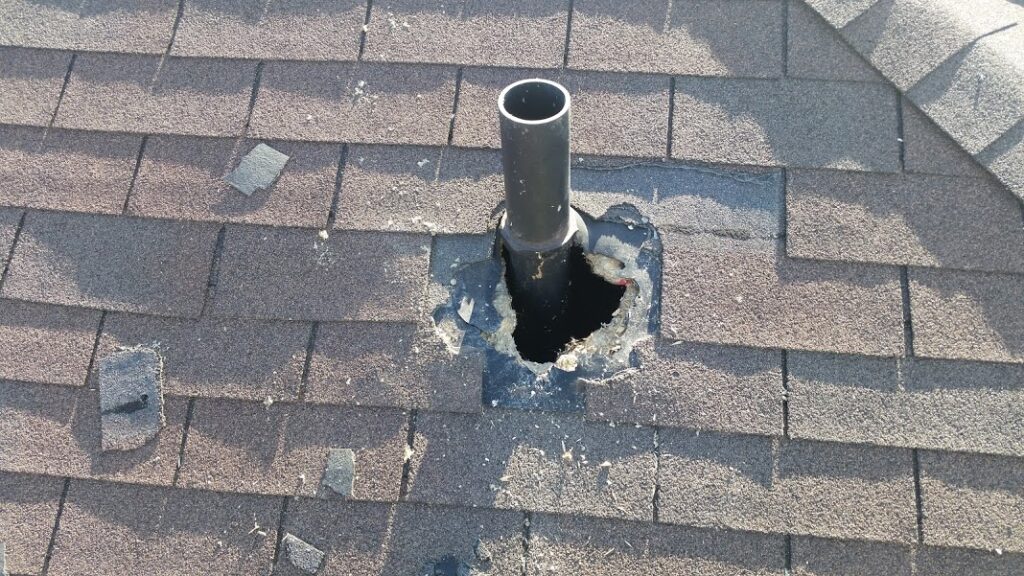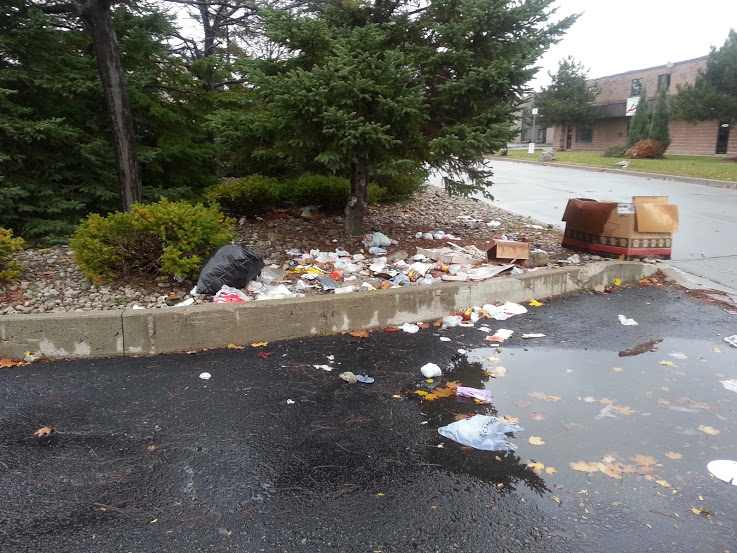The attic is usually an unused space in the home, an area where items are stored or basically the upper portion of the home where insulation and HVAC components reside. While you may never think about even going up in your attic, pests do. The attic is the perfect home for such critters as raccoons as there are areas for nesting and the temperature is quite comfortable. As a homeowner, you want to learn the best ways to prevent a raccoon in the attic situation. Below are a few tips to help you ensure raccoons do not gain access to your home.

Raccoons made short work of this rubber plumbing vent collar to get into the attic below.
Garbage Duty
One of the main reasons that a raccoon is attracted to a home are food sources. Garbage cans are a prime source for food for raccoons. With your outdoor garbage containers, take time to secure lids, even adding locks if needed. When raccoons try to access your garbage cans and fail, they will move on to another home.

Unsecured garbage is a favourite of raccoons.
Bird Feeders
While this may seem odd, raccoons will feast on the feed placed in a bird feeder. Squirrels will too and often times the squirrels will knock feed on to the ground. The feed is within easy reach for raccoons now and they will take advantage of this easy food source. If you find that raccoons are nearby or coming close to your home, remove bird feeders for a time until they move on. This will help to ensure that raccoons do not have a food source to bring them back to your home night after night.
Home Prevention
Raccoons have nimble fingered paws that allow them to climb onto the roofline of your home and gain access to the attic in a variety of ways. To begin with home prevention, take time to trim any limbs on trees that give access to your roof. This will help to provide less access to the space. Gain access to the roof and look for entry points. Any areas where a raccoon can squeeze through can be sealed off with heavy gauge wire. This wire mesh will allow your home to still function normally but will shut off the access point to the raccoon. Look for any areas that could be covered and add wire accordingly.
You can also add motion lights to the outside of the home to deter raccoons from trying to access your attic. Motion lights will turn on when they detect movement, so as soon as the raccoon approaches, the lights will cut on. The raccoon will become scared and will run away instead of trying to get inside your attic or crawl space.
These are just a few ways that you can prevent raccoons from entering your home. Take time to put these methods into practice to avoid having to deal with raccoons in your attic. If you do find that you have a raccoon problem, contact our office for assistance. At Skedaddle Humane Wildlife Control, we are happy to assist with any wildlife control problem including raccoons.


